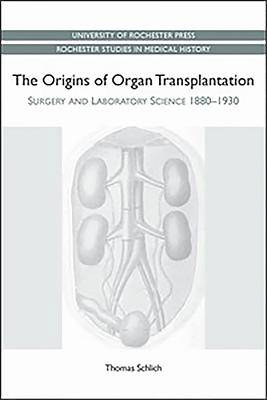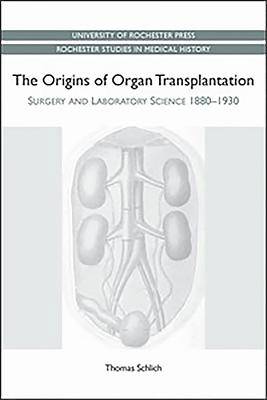
Wil je zeker zijn dat je cadeautjes op tijd onder de kerstboom liggen? Onze winkels ontvangen jou met open armen. Nu met extra openingsuren op zondag!
- Afhalen na 1 uur in een winkel met voorraad
- Gratis thuislevering in België vanaf € 30
- Ruim aanbod met 7 miljoen producten
Wil je zeker zijn dat je cadeautjes op tijd onder de kerstboom liggen? Onze winkels ontvangen jou met open armen. Nu met extra openingsuren op zondag!
- Afhalen na 1 uur in een winkel met voorraad
- Gratis thuislevering in België vanaf € 30
- Ruim aanbod met 7 miljoen producten
Zoeken
€ 64,45
+ 128 punten
Omschrijving
A history of the little-known or forgotten academic origins of modern organ transplant surgery. This book investigates a crucial -- but forgotten -- episode in the history of medicine. In it, Thomas Schlich systematically documents and analyzes the earliest clinical and experimental organ transplant surgeries. In so doing helays open the historical origins of modern transplantation, offering a new and original analysis of its conceptual basis within a broader historical context.
This first comprehensive account of the birth of modern transplantmedicine examines how doctors and scientists between 1880 and 1930 developed the technology and rationale for performing surgical organ replacement within the epistemological and social context of experimental university medicine. The clinical application of organ replacement, however, met with formidable obstacles even as the procedure became more widely recognized. Schlich highlights various attempts to overcome these obstacles, including immunologicalexplanations and new technologies of immune suppression, and documents the changes in surgical technique and research standards that led to the temporary abandonment of organ transplantation by the 1930s. Thomas Schlichis Professor and Canada Research Chair in the History of Medicine at McGill University.
This first comprehensive account of the birth of modern transplantmedicine examines how doctors and scientists between 1880 and 1930 developed the technology and rationale for performing surgical organ replacement within the epistemological and social context of experimental university medicine. The clinical application of organ replacement, however, met with formidable obstacles even as the procedure became more widely recognized. Schlich highlights various attempts to overcome these obstacles, including immunologicalexplanations and new technologies of immune suppression, and documents the changes in surgical technique and research standards that led to the temporary abandonment of organ transplantation by the 1930s. Thomas Schlichis Professor and Canada Research Chair in the History of Medicine at McGill University.
Specificaties
Betrokkenen
- Auteur(s):
- Uitgeverij:
Inhoud
- Aantal bladzijden:
- 365
- Taal:
- Engels
- Reeks:
- Reeksnummer:
- nr. 18
Eigenschappen
- Productcode (EAN):
- 9781580464581
- Verschijningsdatum:
- 15/04/2013
- Uitvoering:
- Paperback
- Formaat:
- Trade paperback (VS)
- Afmetingen:
- 148 mm x 225 mm
- Gewicht:
- 526 g

Alleen bij Standaard Boekhandel
+ 128 punten op je klantenkaart van Standaard Boekhandel
Beoordelingen
We publiceren alleen reviews die voldoen aan de voorwaarden voor reviews. Bekijk onze voorwaarden voor reviews.











